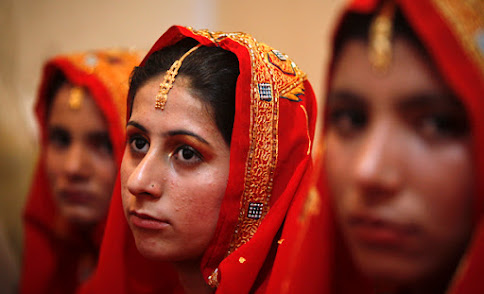Abusive relationships, intimate partner violence, round-the-clock nagging, typical narcissist behavior – Why do women just not LEAVE? Are there some inner child wounds we are overlooking?
“Let’s not
rely on a one-sided story, it’s partially her fault too – there were too
many bald-faced red flags – If I were in her place, I would have left on
the first sign of abuse.” – says a fellow (read: privileged) WOMAN who persists
on living in her haven, while heedlessly following the victim-blaming culture.
Predominantly,
women are expected to be the homemakers or to be more galvanized than
men to iron out their marital status. This socially accepted behest has
influenced women - majorly in the Global South region – to serve their
dysfunctional relationships, eventually furnishing an outlet for male-perpetrator
behavior. In such instances, the first stride in walking out of the
relationship is disdained and winds up in victim-blaming attitudes, which
floodlights more empathy towards the male perpetrator, than the victim.
The agitation
for being victim-blamed tends to reinforce low self-assurance or poise among
women, which makes them feel dependent on their abusive partners for a living –
with an ineptitude to form logical decisions in the bargain.
Why do women make below-par relationship COMPROMISES?
A woman’s
commitment to marriage and her marital happiness is single-handedly dependent
on her concession to adapt to socially constructed gender roles while tossing
away her authenticity (read: identity). In the context of pre-defined
patriarchal values and the glorification of hyper-masculinity – women, since salad
days, are traditionally brushed up in molding their life aims and
experiences around a “sacred commitment to a man”.
Whilst withstanding
these horrifying episodes, the majority of women are ineffectual in
(confidently) determining their own needs, inevitably depending on their
partners to do it for them. The obligation to remain inside the haven of
their comfort zone impedes women from confronting their past traumas and inspecting who
THEY are outside of their traumas. Without the work being done, women,
for the most part, tend to be emotionally dependent on their partners – which,
dismally, serves as an auto-pilot mode (read: survival mode) for them.
This narrative unmitigatedly complements abusive relationships' traditional (desi) social construct. While women from patriarchal societies like Pakistan - due to their inadequacy and a false sense of security - fail to cope with their past traumas, men, in all likelihood take the driver’s seat in the relationship. Having the trump hand allows men to be inconsistent in their efforts for their partners, which creates an arbitrary dynamic between the two. The deprivation built around this inconsistency can then be alleviated by just the bare minimum offered by men.
Now that the
bar is considerably low, women, for the most part, find it conducive to gloss
over the REAL concerns in the relationship – making themselves settle for less.
When given the alternative to walk away from these types of relationships, most
women choose to STAY, due to their ambivalent attachment/addiction to the bare
minimum offered by their partners.
The
Inner-Child Wounds?
People who choose to stay in dysfunctional relationships are not birdbrained. The concept of codependency of women on their partners is ascertained from their childhood traumas, where they are expected to be the emotional confidant of their parents at an early age. This responsibility comes with a superabundance of unmet needs, hypervigilance, feelings of abonnement, unworthiness, and overwhelmingness, due to which women become ineffectual in fully processing their childhood emotions and experiences.
Later, these suppressed parts of a woman’s
childhood become a perennial part of her consciousness and assist in molding a
lens through which she lives and experiences her life as an adult. When such
women commit to a relationship, they intend to seek reassurance from their
partners, to help them navigate their feelings of resentment and shame. This
allows them to shield themselves from anything that contradicts their view of
the world while keeping their egos undetermined.
One of the
many reasons women hold onto dysfunctional relationships is their impracticability
to step outside of their comfort zone, and their belief to fix their
relationships (with a yearning for things to get better) into the bargain.
A woman’s acquaintance
with her dysfunctional relationship allows her to transgress her own authenticity
and dissever from her boundaries – in the process of overlearning her
partner’s appetencies or likings and building an affiliation with him.
This serves as a coping mechanism for most women in abusive/dysfunctional/toxic
relationships to seek validation, love, and acceptance, they were
unable to receive in their childhoods. The routine of healing inner child
wounds through their (abusive) partners forms an insistent pattern of giving
them chance after chance (in the hope of changing them/seeking acceptance) –
knowing that in all likelihood they will be let down again.
By all odds, there is an extensive amount of work to be done to address the inner child affinity wounds in contemplation of eluding the formation of insistent patterns in abusive/dysfunctional relationships.






Comments
Post a Comment